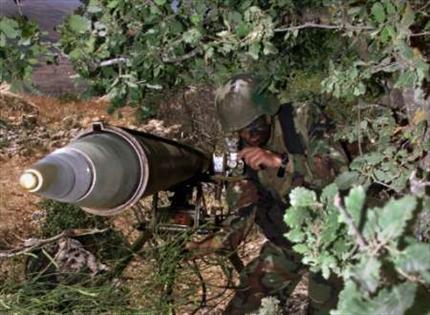How did we end up cheering for Israel?
Abdulrahman al-Rashed/Al Arabiya
Tuesday, 20 January 2015
Many have cheered for the sudden Israeli strike which on Sunday killed six Hezbollah members and a general in the Iranian revolutionary guards who, for some reason, were secretly present in Syria’s Quneitra. The cheering expresses anger and indignation and many expressed frankly those feelings via social networking websites and we’ve even sensed those emotions even from sympathizers with Islamic groups. This huge transformation of feelings against Hezbollah is due to the latter’s heinous actions of targeting its rivals in Lebanon and its involvement in the killing of thousands in Syria. Those who shifted from admiring Hezbollah to hating the group did so in less than one decade.
Hezbollah’s biggest fall
These people used to support Hezbollah in Lebanon in the past and they used to adopt the Shiite party’s political and military agenda. Anger began to surface when Hezbollah’s militias occupied west Beirut during the May 7 events – three years after the party’s involvement in the assassination of Sunni leader Rafiq al-Hariri in 2005. Hezbollah, and also Iran, have lost the respectful and honorable status which they’ve always enjoyed in the name of Islam, Lebanon and Palestine. Hezbollah’s biggest fall came in the wake of its clear sectarian bias in Syria as its members joined the filthy war which has killed more than 250,000 people in this biggest crime in the history of the region. This Iranian involvement in Syria will also have further repercussions. There’s no doubt, in my view, that if a confrontation occurs between Israel and Hezbollah or between Israel and Iran, many Arabs will pray for the defeat of Hezbollah’s militias and generals of its Iranian ally. This strange feeling, even if temporary, reflects the change in the region’s alliances and political stances.
My enemy’s enemy
The hatred held by many Arabs towards Iran and Hezbollah does not necessarily mean a sudden love towards Israel – that’s another story. Perhaps it would be in case of achieving a Palestinian-Israeli peace that garners more popular acceptance than before.
Hezbollah’s biggest fall came in the wake of its clear sectarian bias in Syria as its members joined the filthy war. In case a regional struggle happens, like an Arab struggle with Iran, and Israel is an apparent party in the Arab camp, people will – I believe – upon the concept of “my enemy’s enemy is my friend,” turn a blind eye to this temporary alliance. Once again, this does not mean that Israel will be accepted by Arabs on the popular level – unless in the case of achieving peace with the Palestinians.
Regional balance
We are in a transitional phase of the map and alliances after 1948, and the struggles and hostilities may shift in a totally different direction. Iran and Hezbollah may be on the side of the Jewish state in case a nuclear agreement signed with the West satisfies Israel, which is now considered an obstacle due to its strict stance against American concessions to the Iranians. In case of a U.S. insistence to reach an agreement (with Iran) that angers the Israel, the latter could push itself towards Arab countries to achieve the necessary regional balance. Israel is currently participating, from a distance, alongside an alliance that’s publicly pressuring the American administration of Barack Obama against being lenient in the negotiations with Tehran; however, it’s not an Israeli-Gulf alliance which can be counted on as Israeli disputes with Arabs of the Gulf regarding Palestine and Syria are not only major and many but also difficult to overcome.




















